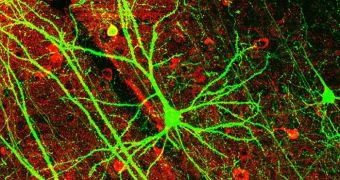The human brain was officially declared by US President Barack Obama to be the target of a new research effort some seven months ago, but details of what that entails have been scarce until now. It has recently surfaced that the BRAIN Initiative will also include efforts to restore memories US veterans have lost following deployment to theaters of operation in Iraq and Afghanistan.
Among the other components of the initiative are an effort to map the entire nervous system of the fruit fly – a common research subject for a variety of studies – as well as the development of modern scientific tools to enable investigators to study individual circuits within the human brain.
Officials with the US Defense Advanced Research Projects Agency (DARPA) have already allotted more than $50 million (€37 million) for their participation in the BRAIN Initiative, while the National Institutes of Health (NIH) have pledged around $40 million (€29.6 million) for the same thing.
DARPA wants to conduct in-depth research on the brain illnesses that affect veterans returning from the field. The announcement was made by the agency's deputy director, Dr. Geoffrey Ling, during a news conference at a meeting of the Society for Neuroscience, held in San Diego.
The official adds that traumatic brain injuries and post-traumatic stress disorders (PTSD) are very common in returning soldiers. The BRAIN Initiative may help develop a way of restoring declarative memory loss in veterans, Ling said.
One way of doing this would be through the use of a device that DARPA has already tested on rodents. The tool would be inserted in the hippocampus, an area of the brain responsible for encoding memories. The agency is very interested in moving to human trials as soon as possible.
On the other hand, NIH officials will concentrate their efforts on determining how various individual circuits in the human brain operate. The announcement was made at the same conference by the director of the NIH National Institute of Neurological Disorders and Stroke, Story Landis.
“We believe that the tools and technologies that will come from this initiative will actually enable all brain scientists to do their work better, faster and with more impact,” Landis said.
It is very likely that studies conducted under the BRAIN Initiative will eventually lead to a host of new treatments against numerous diseases affecting the human brain and mind. However, the focus of the effort is now placed on understanding the brain in more detail than ever before, NPR reports.

 14 DAY TRIAL //
14 DAY TRIAL //